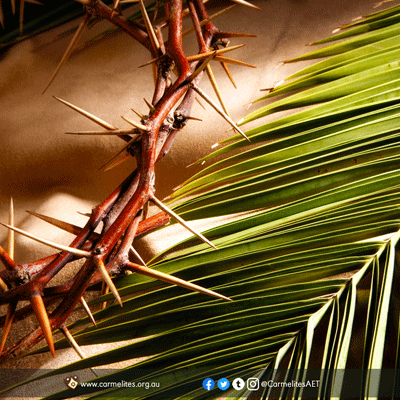 Reading the passion story is always a deeply confronting experience. It’s not just the detail of the trial, torture and death of Jesus. It is the realisation that God has emptied himself of everything we expect gods to have – might, power, astonishing wealth, swift and fierce retribution, preferential treatment for some and oppression for others, life itself.
Reading the passion story is always a deeply confronting experience. It’s not just the detail of the trial, torture and death of Jesus. It is the realisation that God has emptied himself of everything we expect gods to have – might, power, astonishing wealth, swift and fierce retribution, preferential treatment for some and oppression for others, life itself.
In the person of Jesus, God emptied himself into a fragile, naked, tortured human being at the mercy of civil and religious authorities. The God that the religious authorities and the people of Jesus’ time expected in the Messiah is not the God who showed up in the carpenter’s son. Often, too, the God we expect and want is not the God we see in Jesus.
What we see in the passion of Jesus is just how passionate God is about us humans.
They brought Jesus to the place called Golgotha, which means the place of the skull.
They offered him wine mixed with myrrh, but he refused it. Then they crucified him, and shared out his clothing, casting lots to decide what each should get. It was the third hour when they crucified him. The inscription giving the charge against him read: “The King of the Jews.” And they crucified two robbers with him, one on his right and one on his left.
The passers-by jeered at him; they shook their heads and said, “Aha! So you would destroy the temple and rebuild it in three days! Then save yourself: come down from the cross!” The chief priests and the scribes mocked him among themselves in the same way: “He saved others, he cannot save himself. Let the Christ, the king of Israel, come down from the cross now, for us to see it and believe.” Even those who were crucified with him taunted him.
When the sixth hour came there was darkness over the whole land until the ninth hour. And at the ninth hour Jesus cried out in a loud voice, “Eloi, Eloi, lama sabachthani!” which means “My God, My God, why have you deserted me?” When some of those who stood by heard this, they said “Listen, he is calling on Elijah.” Someone ran and soaked a sponge in vinegar and putting it on a reed, gave it to him to drink, “Wait and see if Elijah will come to take him down.” But Jesus gave a loud cry and breathed his last.
And the veil of the Temple was torn in two from top to bottom. The centurion, who was standing in front of him, had seen how he had died, and he said, “In truth this man was a son of God.” (Mark 15:1-39 abridged)
Some years ago, I visited the Pro Hart Gallery in Broken Hill. Tucked up in the upper reaches of the gallery, was a painting quite different to the others.
On a sunset coloured wash, it depicted Christ weighed down with carrying his cross. Behind him straggled a ragtag bunch of humanity – the elderly, a child with only one leg on crutches, a man with a machine gun and many, many others. This painting stopped me in my tracks! It almost looked like a pen and ink sketch but for me the impact was enormous. Sure, it depicted Christ carrying the cross but the amazing element for me was that it presented the polyglot of people caught up in the Easter story and brought home to me the enduring relevance of the Passion here and now, for all of us.
If we were to create a similar picture, which figures would it contain? Perhaps it would include the people of Syria, the Rohingya refugees, the refugees flooding into Europe, the elderly without support systems, people living in abusive relationships, people whose sexuality does not fit ‘the norm’, kids who are sick and hungry, workers for the common good with very limited resources, the down-and-out beggars on city streets, people who do not receive a fair wage for their work, people who cannot find work, people in ‘Detention Centres’, people under repressive regimes – be it in their country, their workplace or their home. The list seems endless.
What about the people in Jesus’ time? At least some of them were expecting a triumphal Messiah who would overthrow oppression with arms and flaring battles. Not what they got. Instead they had a rabbi who emptied himself of everything.
What about the ordinary people in western civilisation in our own time? Are we misguided in our expectations too? Are we selling out to the lie that more and more is better as we live under the yoke of corporate greed, which causes jobs to disappear and dreams to disintegrate?
Are we any different to the people of Jesus’ time who waved palms and yelled out, “Hosanna”? Are we any different to the crowd that screamed, ‘Crucify him!’
Instead of a superhero, we have a man who looks at the ragtag of humanity and still says to us ‘This is my body.’
The Easter story is worth remembering, re-telling, re-imaging, because it is the story of all of us in one way or another.
Christine Wade
Download Celebrating At Home for this Sunday.
Celebrating At Home Palm/Passion Sunday [PDF]
Celebrating At Home Palm/Passion Sunday [ePub]














